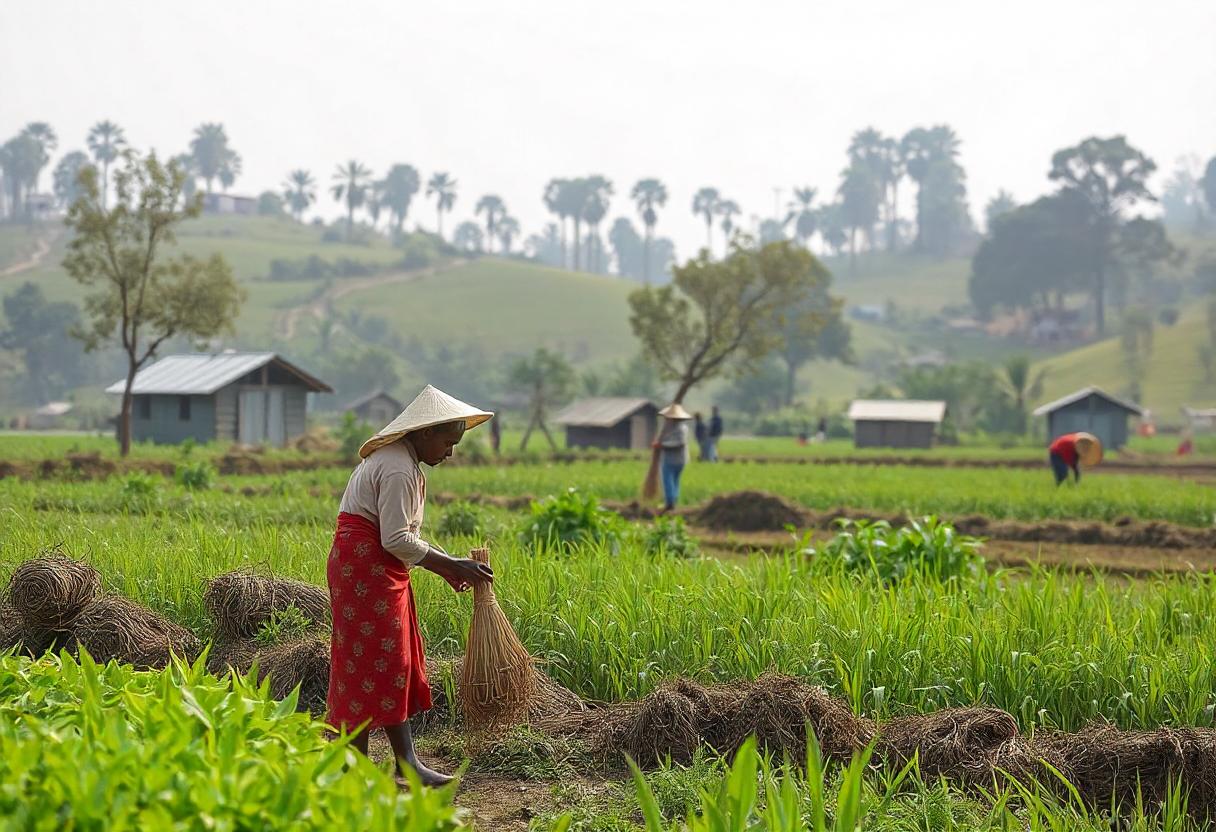
Introduction
Subsistence farming is a fundamental agricultural practice wherein farmers grow crops and raise livestock primarily to meet the needs of their own families rather than for commercial sale. This form of agriculture has been the traditional way of life for many communities worldwide and continues to be a vital component of the agricultural sector, especially in developing countries.
Definition and Characteristics
Subsistence farming is characterized by its focus on self-sufficiency. Unlike commercial farming, which aims to produce surplus goods for sale in local or global markets, subsistence farming prioritizes the direct consumption of food by the farmer’s family or community. Key characteristics of subsistence farming include:
- Limited Scale: Farms are generally small, often just enough to sustain the family.
- Diverse Crops: Farmers grow a variety of crops and keep different types of livestock to ensure a balanced diet and to minimize risks from crop failure or livestock disease.
- Low Input: It often relies on traditional farming techniques with minimal use of artificial inputs like fertilizers, pesticides, and machinery.
- Manual Labor: Farming practices are predominantly manual, with little to no mechanization.
Types of Subsistence Farming
- Shifting Cultivation: Also known as slash-and-burn agriculture, this method involves clearing a plot of land by cutting and burning vegetation. The land is then used for growing crops for a few years until soil fertility declines, after which the farmer moves to a new plot. This method is common in tropical rainforest regions.
- Intensive Subsistence Farming: Practiced in densely populated areas, this method focuses on maximizing output from a small land area through techniques such as double or triple cropping. It often involves high labor input and the use of irrigation.
- Pastoral Nomadism: This involves raising livestock and migrating with herds in search of grazing land and water. It is common in arid and semi-arid regions.
- Agricultural Horticulture: This type focuses on growing fruits, vegetables, and herbs for personal consumption and local trade.
Advantages of Subsistence Farming
- Food Security: It provides a reliable source of food for farming families, reducing dependence on external markets.
- Cultural Preservation: It helps maintain traditional farming practices and lifestyles that are integral to many cultures.
- Environmental Sustainability: With minimal use of chemical inputs, subsistence farming can have a lower environmental impact compared to commercial farming.
Challenges Faced by Subsistence Farmers
- Limited Resources: Subsistence farmers often lack access to modern technology, high-quality seeds, and financial resources.
- Low Productivity: Due to the limited use of inputs and technology, productivity can be low, which affects food security and income levels.
- Vulnerability to Climate Change: Subsistence farming is highly susceptible to changes in weather patterns and climate conditions, which can impact crop yields and livestock health.
- Economic Isolation: Farmers are often isolated from broader economic opportunities and markets, limiting their ability to generate income beyond their immediate needs.
Economic and Social Impacts
Subsistence farming plays a crucial role in the livelihoods of millions of people, especially in developing countries. It is integral to the rural economy and contributes to the stability of local communities. However, the economic viability of subsistence farming can be precarious, as it is heavily reliant on favorable environmental conditions and traditional practices.
Modernization and Future Perspectives
There is ongoing debate about the role of subsistence farming in the modern world. On one hand, modernization and commercialization can improve productivity and income levels. On the other hand, there are concerns about the loss of traditional knowledge, cultural practices, and the environmental impact of industrial agriculture.
Efforts to support subsistence farming often include:
- Providing Access to Resources: Programs that offer training, improved seeds, and access to credit can help increase productivity and income.
- Promoting Sustainable Practices: Encouraging sustainable agricultural practices that enhance soil health and biodiversity can mitigate some of the environmental impacts.
- Supporting Market Access: Developing local markets and infrastructure can help subsistence farmers access broader economic opportunities.
Subsistence farming remains a vital practice that supports millions of families around the world. While it faces significant challenges, it also offers important benefits in terms of food security and cultural preservation. Balancing modernization with respect for traditional practices and sustainable approaches will be key to ensuring that subsistence farming continues to thrive and adapt in the face of changing global dynamics.